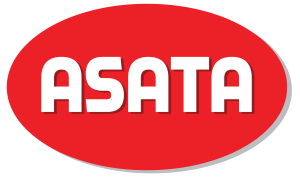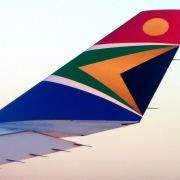Domestic airfares to go up?
As ASATA has signed a formal agreement with SA Tourism to promote domestic tourism in South Africa, reports suggest that domestic airfares will skyrocket during the coming few months.
TIR reported this month that domestic suppliers have implemented significant rate increases, rendering domestic travel almost more expensive than international travel. eTNW has also predicted that airfares will increase from April 1.
Spokesperson for LCC Mango Hein Kaiser explains that the increases in airfares could likely be a latent impact of the significant weakening of the Rand. But, he was quick to point out that Mango’s fares have been consistent over this time period with peak and demand fares stable.
Said Kaiser: “Air fares and fare levels are governed by input costs which, again, are highly dependent on exchange rates. The bulk of an airline’s input costs are priced in foreign currency and, as such, with a weakened Rand, makes air travel particularly vulnerable.”
Shaun Pozyn, Head of Marketing: British Airways and kulula.com, said airlines would not be hiking their fares, despite increased demand during school holidays and long weekends.
Pozyn explains: “We are operating in a very highly competitive environment, which is currently displaying low growth and market demand with too much excess capacity on some of the routes. Owing to this, kulula.com has not increased nor will we be increasing our fares in the near future. kulula will continue to focus on efficiencies to ensure that we operate a sustainable business in the current market conditions.”
According to Kirby Gordon, Vice President: Sales and Distribution for Safair Operations, Safair prices its fares on a demand curve basis. “The first fare always goes for the best price, and then as the aircraft fills up, the seats become incrementally more expensive,” he explains, adding that during peak season, the aircraft fills up quickly, so those last fares reach their highest levels. “The most expensive fare on a half full flight might be R1000, while on a full flight it could be R2000.”
Says Gordon: “Late March and early April have proved to be incredibly high demand periods and we’ve been pleasantly surprised to see the number of people who appear to be taking advantage of the opportunity to fly over the holiday period – especially considering the state of the local economy.”
Gordon adds that airlines traditionally adjust their pricing in early April in accordance with the IATA season, usually aiming to go into winter at a slightly higher price point, because demand is low and so airlines need to charge slightly more for the tickets to cover the costs of less than full aircraft. However, he points out that Safair has not not adjusted its fares much, with the cheapest flights still selling at R499.
However, Gordon predicts there will eventually be a rise in the price of airfares, as much as there will also be a rise in the general cost of living. He says: “Economists are predicting a fairly heavy inflationary period driven by the currency, with interest rates and the cost of basic living driving inflation up to between 5% and 10%. Unfortunately, we are also heavily exposed to these factors (particularly the currency and the oil price) and so I believe it’s fare to assume that air fares will also rise to a similar quantum.”










